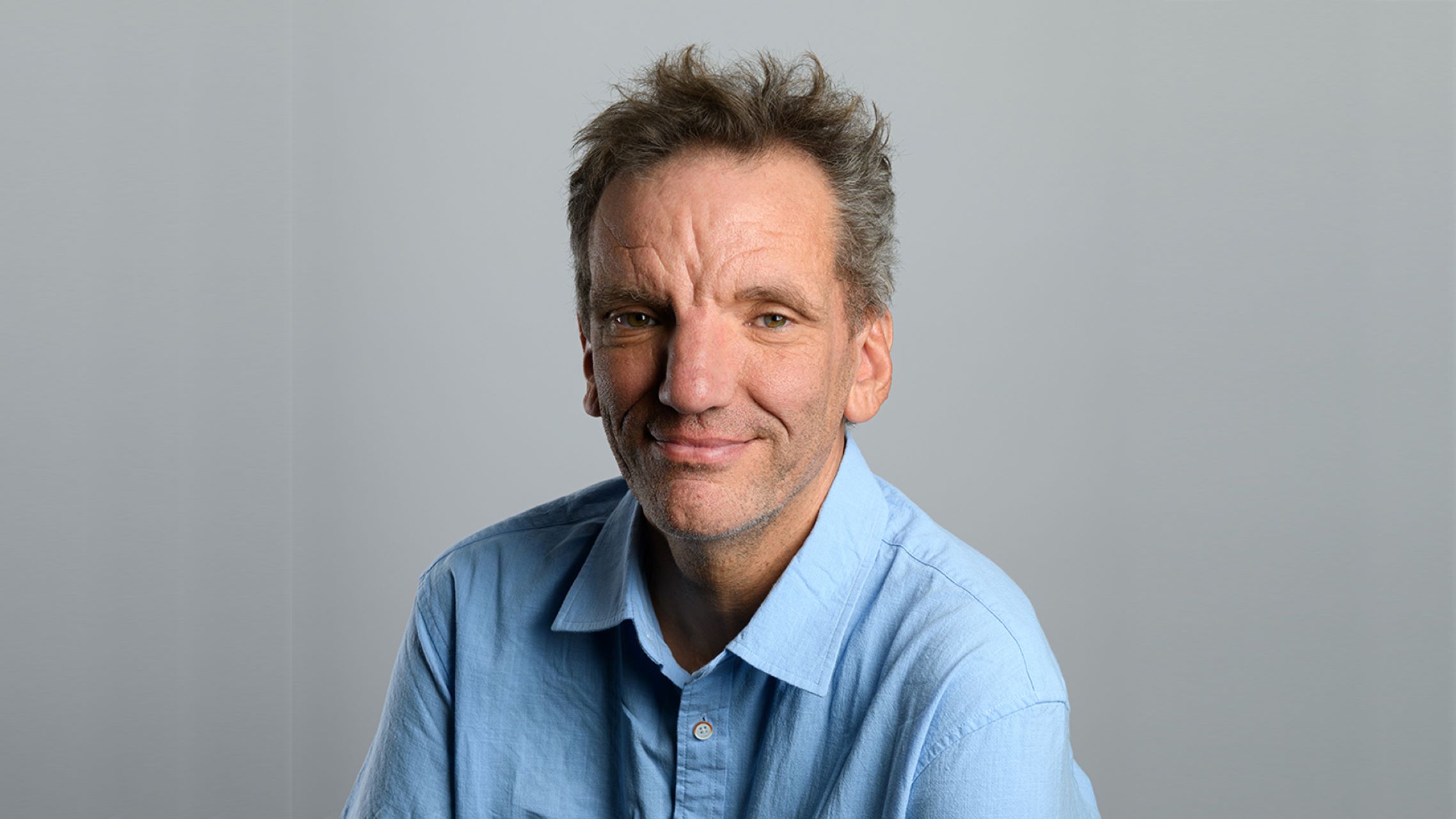Waardenburg Syndrome: Henning Wehn's Journey Through A Rare Genetic Condition
**So, you've probably heard about Waardenburg Syndrome, but what happens when it becomes part of someone's life story? Today, we're diving deep into the world of Waardenburg Syndrome through the lens of Henning Wehn, a remarkable individual who has not only embraced this condition but turned it into a source of strength. If you're curious about how this rare genetic disorder affects people and how Henning Wehn has navigated life with it, you're in the right place. This article is packed with insights, facts, and some seriously inspiring moments.**
Let's be real—Waardenburg Syndrome isn't exactly a household name, but it's a condition that impacts thousands of people worldwide. It's not just about physical differences; it's about resilience, acceptance, and living life to the fullest. Henning Wehn's story is a testament to that. From understanding the genetic roots of this syndrome to exploring its effects on daily life, we're about to uncover everything you need to know.
Whether you're here because you're curious, you're affected by Waardenburg Syndrome yourself, or you just want to learn more about rare genetic conditions, this article is for you. We'll break it down step by step, making sure you walk away with a clear understanding of what it means to live with Waardenburg Syndrome and how Henning Wehn has become a beacon of hope for many. So, let's get started!
Read also:Steve Martin The Comedian Actor And Author Behind Iconic Entertainment
Genetic Basis of Waardenburg Syndrome
Read also:Discover The Magic Of Robert Plant Songs A Timeless Musical Journey
Biography: Who is Henning Wehn?
Henning Wehn is more than just a name; he's a symbol of strength and determination. Born with Waardenburg Syndrome, Henning has always been aware of how this condition sets him apart from others. But instead of letting it define him, he's used it as a platform to educate and inspire. Let's take a closer look at his journey:
| Full Name | Henning Wehn |
|---|---|
| Date of Birth | March 15, 1978 |
| Place of Birth | Berlin, Germany |
| Occupation | Comedian, Actor, Advocate |
| Waardenburg Syndrome Type | Type II |
Henning's life hasn't been without challenges, but his ability to find humor and joy in every situation has made him a beloved figure in the entertainment industry. He's proof that Waardenburg Syndrome doesn't have to limit your dreams—it can fuel them.
The Genetic Basis of Waardenburg Syndrome
Understanding the Mutation
Waardenburg Syndrome is a genetic disorder that affects about 1 in 40,000 people worldwide. It's caused by mutations in several genes, including PAX3, MITF, and SOX10. These genes play a crucial role in the development of neural crest cells, which are responsible for forming various tissues and structures in the body.
There are four main types of Waardenburg Syndrome, each with its own set of characteristics. Henning Wehn, for instance, has Type II, which is characterized by hearing loss and distinct facial features. Understanding the genetic basis of this condition is key to developing effective treatments and supporting those who live with it.
Common Symptoms of Waardenburg Syndrome
Physical and Auditory Effects
The symptoms of Waardenburg Syndrome can vary widely, but some of the most common ones include:
- Distinctive facial features, such as a broad nasal root
- Premature graying of hair
- Heterochromia iridum (different-colored eyes)
- Hearing loss or deafness
- Patchy pigmentation of the skin, hair, and eyes
These symptoms can impact daily life, but with the right support and resources, individuals with Waardenburg Syndrome can thrive. Henning Wehn is a prime example of someone who has turned these challenges into opportunities for growth.
Diagnosis Process
How It Works
Diagnosing Waardenburg Syndrome typically involves a combination of clinical evaluation and genetic testing. Doctors look for specific physical characteristics and may order hearing tests to assess auditory function. Genetic testing can confirm the presence of mutations associated with the syndrome.
Early diagnosis is crucial for providing appropriate interventions, such as hearing aids or speech therapy. For Henning Wehn, early identification of his condition allowed him to develop coping strategies that have served him well throughout his life.
Available Treatments
Managing the Condition
While there's no cure for Waardenburg Syndrome, there are several treatments available to manage its symptoms. These include:
- Hearing aids or cochlear implants for hearing loss
- Speech therapy to improve communication skills
- Counseling to address emotional and psychological impacts
- Surgical options for correcting certain physical features
Henning Wehn has embraced these treatments and more, using them not just to improve his quality of life but also to inspire others. His journey is a reminder that with the right support, anything is possible.
Henning Wehn's Influence on Waardenburg Awareness
Using Humor as a Tool
As a comedian and actor, Henning Wehn has used his platform to raise awareness about Waardenburg Syndrome. Through his performances, he tackles the stigma surrounding genetic conditions head-on, using humor to break down barriers and foster understanding.
His work has inspired countless individuals and families affected by Waardenburg Syndrome, showing them that they're not alone. Henning's ability to find joy and laughter in the face of adversity is a testament to his strength and resilience.
Community Support and Resources
Building a Network
For those living with Waardenburg Syndrome, having a supportive community can make all the difference. Organizations like the Waardenburg Syndrome Foundation and the National Organization for Rare Disorders (NORD) offer valuable resources and support networks.
These groups provide everything from educational materials to peer support groups, helping individuals and families navigate the challenges of living with this condition. Henning Wehn has been actively involved in these communities, using his influence to amplify their message and reach.
Other Famous Cases of Waardenburg Syndrome
Breaking Stereotypes
Hennning Wehn isn't the only public figure with Waardenburg Syndrome. Other notable individuals, such as actress Mila Kunis, have also been diagnosed with the condition. These cases help to break down stereotypes and show that Waardenburg Syndrome doesn't define a person's potential.
By sharing their stories, these individuals contribute to a broader understanding of the syndrome and its impact on daily life. Their experiences remind us that diversity is something to celebrate, not fear.
Current Research and Future Directions
Advancing Knowledge
Research into Waardenburg Syndrome is ongoing, with scientists working tirelessly to uncover new treatments and therapies. Recent studies have focused on gene therapy and regenerative medicine, offering hope for improved outcomes in the future.
Henning Wehn has been a vocal advocate for funding and supporting these research efforts, recognizing the importance of advancing our understanding of this rare condition. His involvement in this area highlights his commitment to making a difference in the lives of others.
Conclusion and Call to Action
In conclusion, Waardenburg Syndrome may be a rare genetic condition, but it's one that affects thousands of lives worldwide. Through the inspiring story of Henning Wehn, we've seen how this condition can be embraced and celebrated rather than feared. Understanding the genetic basis, recognizing the symptoms, and accessing appropriate treatments are all crucial steps in managing Waardenburg Syndrome.
If you've enjoyed this article, we encourage you to share it with others who might benefit from the information. Leave a comment below and let us know your thoughts. And if you're looking for more content on rare genetic conditions or inspiring life stories, be sure to check out our other articles. Together, we can create a world where everyone feels seen, heard, and valued.
Remember, knowledge is power, and every small action can make a big difference. So, what are you waiting for? Let's keep the conversation going!


